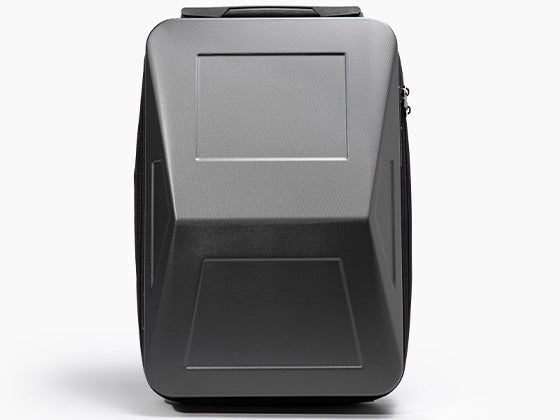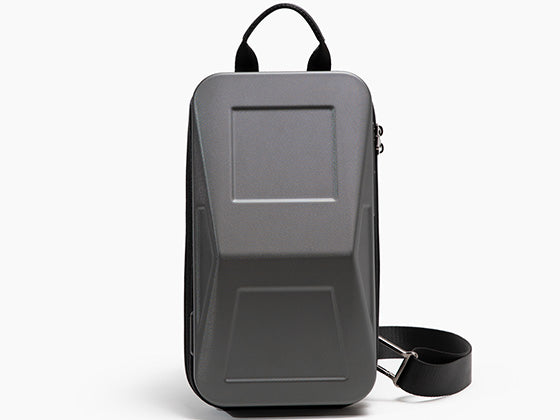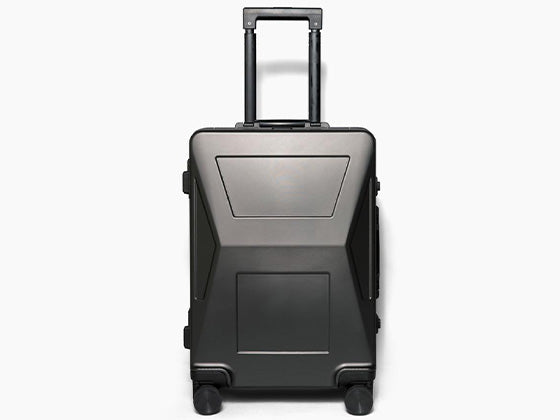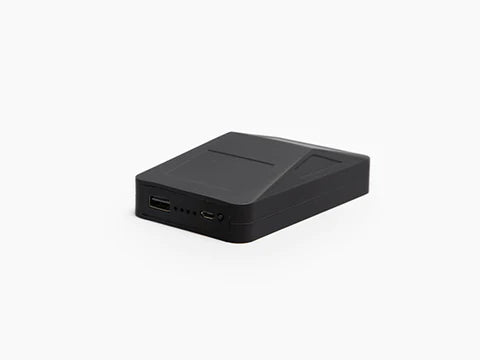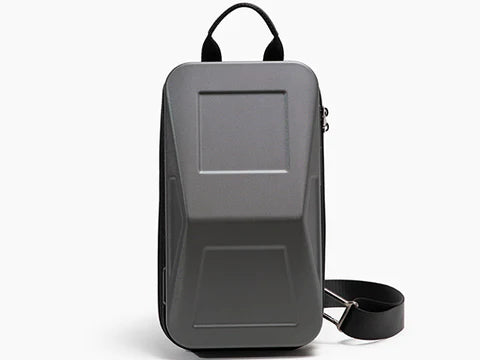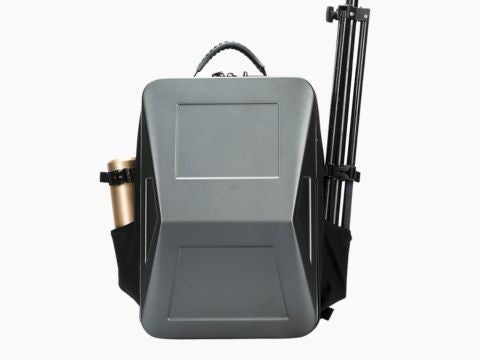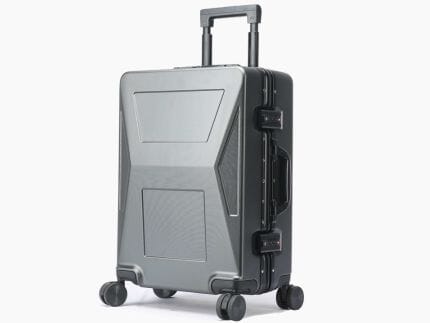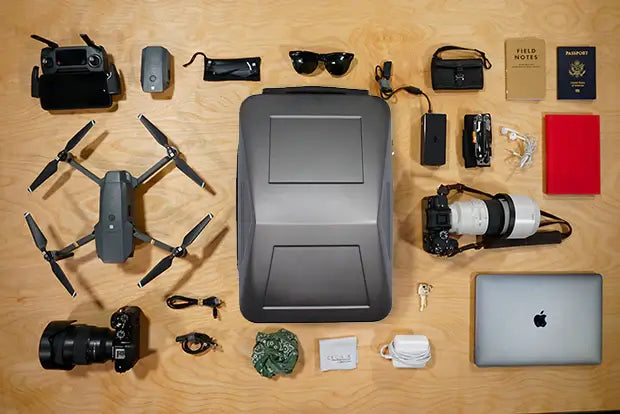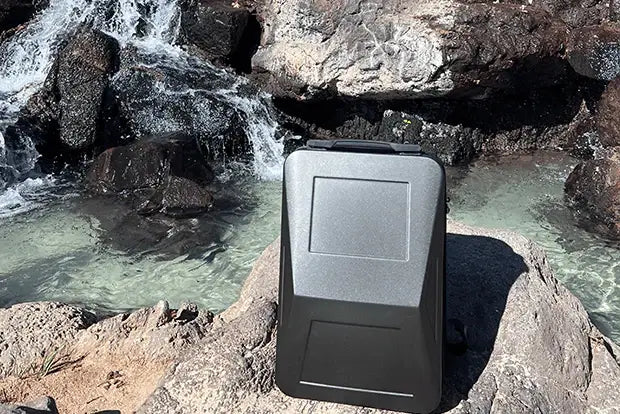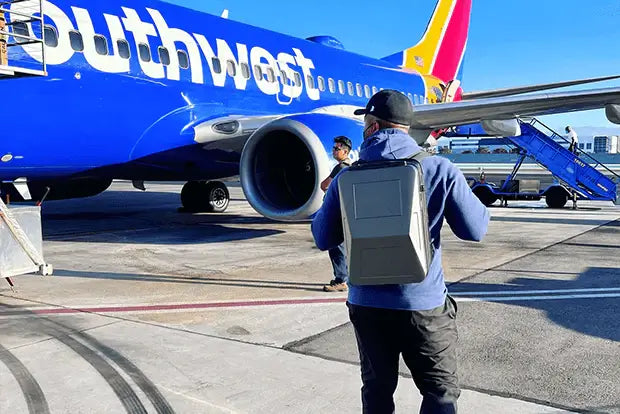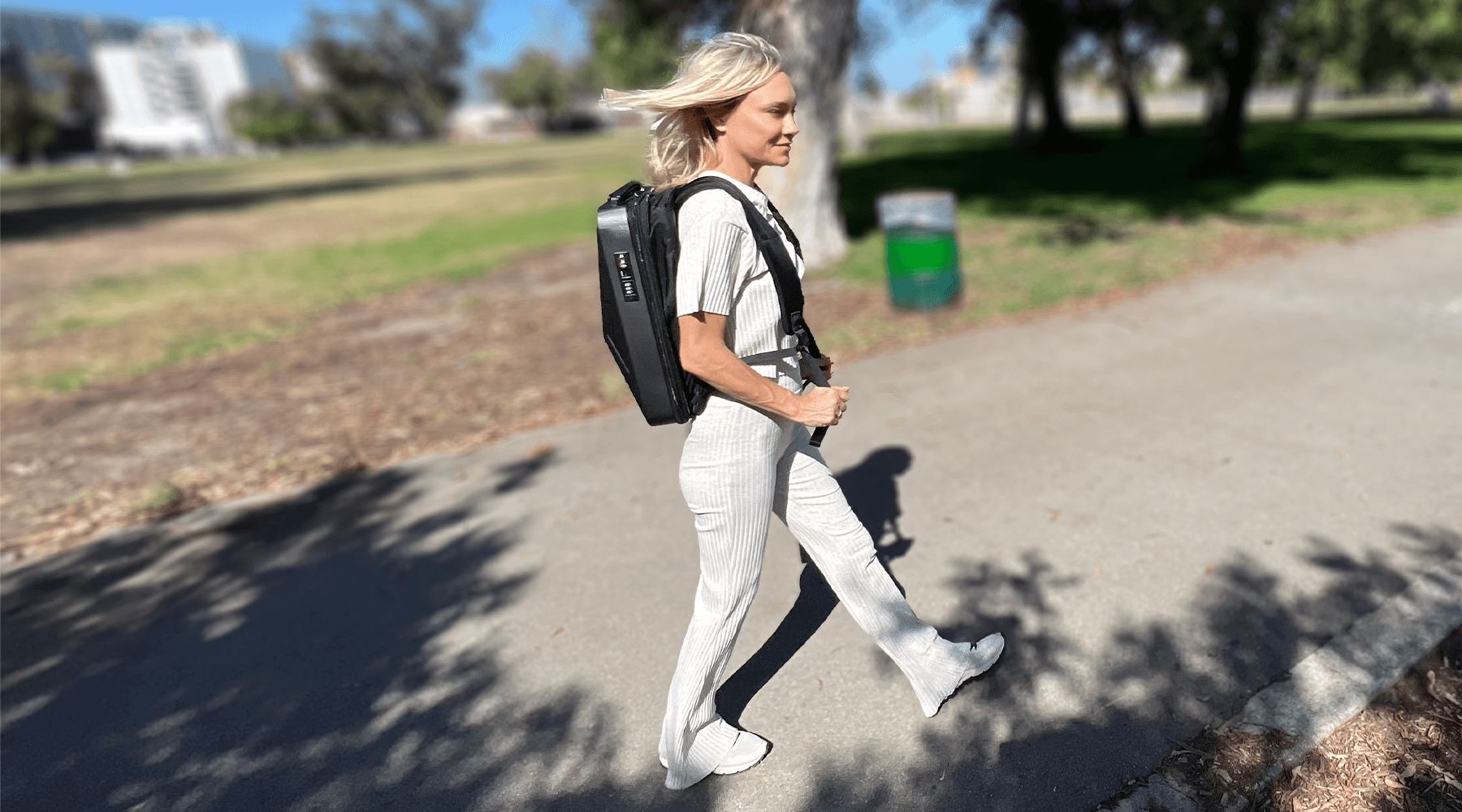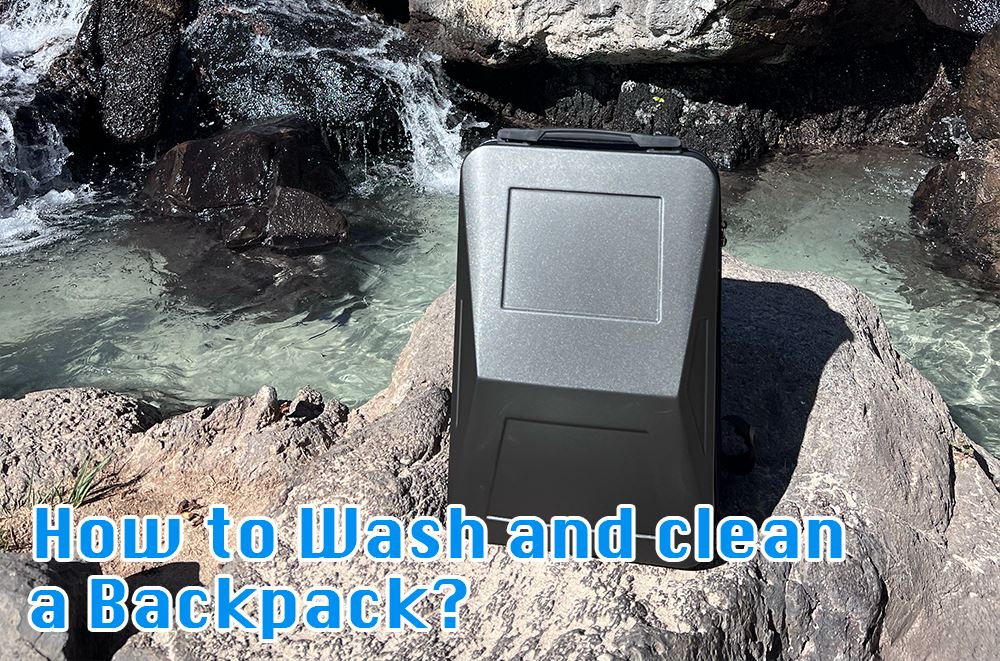Did you know that over 60,000 laptops are stolen from airports in the United States each year?
Yes, you read it right!
Whether you're a designer, tech professional, commuter, or traveler, you should have the perfect laptop backpack. When you're traveling with a laptop, the last thing you want is for it to get harmed. It can all be prevented with a bit of planning, whether it's due to anything beyond your control or because you forgot to do something.
Now the question arises, "how to keep the laptop safe in a backpack?".
We have mentioned all the tips and techniques to keep the laptop safe in a backpack.
A laptop can store your entire life. It's crucial to your earnings if you work from home. It is where students save all of their documentation and assignments. There are also personal images and videos.
And you occasionally use it to watch TV shows or video chat with friends and family. You may be making music, creating art, or writing the next best-selling novel on your laptop. So you want to maintain it in good condition.
When we buy a new electronic device, such as a laptop, mobile phone, or tablet, for the first few days, we use it with extreme care.
Then we grow unconcerned with devices, understanding that they require our full attention and care, just as our bodies do.
Steps to Keep Laptop Safe In Backpack

The first time you turn on a new laptop is always an exciting experience. As technology advances, the most up-to-date features equip you with the finest gadget for studying and fun.
Though you may be eager to open it and start having fun right away, we recommend that you first take preventative measures to avoid any potential harm.
1. Purchase insurance and warranties:
Ensure your laptop has insurance and a guarantee before opening the box. Many manufacturers provide items with immediate, limited warranties, and you may also purchase insurance plans or extended warranties from the store where you bought the laptop.
These policies can safeguard your investment against unintentional damage, mechanical failures, software malfunctions, and other issues you have little control over.
Some credit cards will automatically extend the manufacturer warranty and even add theft and loss protection. Many insurance companies provide discounts for using Higher Ground situations.
2. Purchase laptop protection accessories:
Warranties and insurance policies are not always comprehensive and may not cover all losses.
Additional safety equipment should be purchased to decrease downtime and offer optimal protection. Protecting the keyboard and screen of your computer with keyboard covers and screen protectors is recommended.
Chromebook protective cases can endure and reduce a wide range of wear and tear. Invest in one that allows you to use the gadget without removing the cover for maximum convenience and safety.
3. Purchase security:
It would be best to use security software to safeguard your computer from viruses and proactively examine the dangers of various websites, files, or applications.
4. Practice safe habits:
Even when you aren't using your laptop, you should keep safe habits to protect it. Never hold anything close to the keyboard and screen or pick up a laptop by the screen.
When working, keep liquids away from your computer. Always put it in a high-quality backpack, and store it someplace protected from environmental and unintentional harm.
5. Restrict use:
You may use the laptop responsibly, but others might not. Make distinct profiles for each user using the computer, and only grant them access to the required resources and apps. Ensure that only authorized users may access administrator files and services.
A brand-new laptop is an investment; thus, safeguarding it should be essential. Follow these instructions to keep your device as safe and secure as possible.
Even though the manufacturer's warranties have run out, it's still a good idea to implement these suggestions if you have an older laptop to help extend its lifespan. Of course, there is one significant risk that you should always aim to avoid, regardless of the sort of laptop or Chromebook you own: theft.
How To Keep a Laptop Safe In Backpack From Theft?
Everyone hates to imagine getting their laptop stolen, but even if it doesn't happen to you, it's always a good idea to be ready. Regardless of how recent or old your laptop is, it would help if you took every precaution to keep it from missing.
Theft may occur anywhere, whether in a classroom, a corridor, or a bus. Wherever you take your smartphone, be mindful of your surroundings, and never hide it.
If carrying your belongings in a backpack is your primary approach, you might consider purchasing an anti-theft type. But what exactly makes a bag "anti-theft"? Several things.
First off, the majority are constructed from extra-durable, anti-slash materials, making it quite challenging for would-be thieves to hack their way inside your bag.
Second, it frequently appears there is no way into the bag since flaps often conceal the zippers.
Lastly, many anti-theft backpacks include accessories like locking wires, combination locks, and RFID-blocking technologies (which we will provide more detail about later).
Each year, a large number of laptops are reported stolen. Some are taken from parked automobiles, and others are stolen while the owner is still present.
Your PC is an expensive item that can be easily slipped into someone else's bag while you aren't looking. Always keep your laptop with you or in a locked locker. If you must leave the room, ask a trusted friend or instructor to keep an eye on your laptop until you return.
Also, keep an eye out for data theft. Malware, viruses, and other virtual dangers can steal data and essential information if your laptop is not secured.
Never install anything on your computer about which you are doubtful. Connect only to secure WiFi networks, particularly ones with password protection. Use difficult-to-guess passwords and never share them with anyone.
How To Keep a Laptop Safe In Backpack While Traveling?
Laptops are delicate and susceptible to contaminants, shocks, vibrations, and moisture. Pack your laptop carefully to prevent damage, component failure, and premature wear and tear.
Internal parts may rust and fail early as a result of humidity. Traveling in humid areas like the tropics raises serious safety concerns, and the use of laptops in humid environments reduces their lifespan. Of course, spills and moisture from the weather might also harm your laptop.
Electronics and water don't get along. Your laptop should be packed in a way that keeps it dry. Your laptop should ideally be kept in a backpack, bag, or case that is water-resistant or waterproof. Keep your laptop inside a waterproof bag or dry sack for further weather protection.
Dust, dirt, lint, hair, sand, and other contaminants can damage your laptop. These contaminants can make their way inside your laptop and clog fans, vents, and heat sinks.
This prevents your laptop from cooling correctly. Eventually, your laptop can overheat, and this can damage the components and cause your laptop to fail.
You'll want to pack your laptop in a way that keeps it clean and protected from contaminants.
Additionally, refraining from using your laptop in contaminated areas would be best. If you use your laptop in a filthy environment, you should frequently open it up and clean it.
To remove dirt and dust, use a compressed air can. Remember that certain contemporary laptops cannot be unlocked. Some are mechanically inactive.
How to Choose a Laptop Backpack for Travel
Carrying a laptop in a backpack built expressly for carrying a laptop is the safest method to pack it for vacation.
When shopping for a laptop bag, opt for one with a cushioned sleeve built in. While wearing the backpack, the sleeve should secure the laptop, so it rests against your back.
A laptop is a large piece of equipment. To avoid pressure on your shoulders and back, carry it as close to your body as feasible.
The ideal sleeve would also protect the laptop. By doing this, your laptop won't fall to the ground when you set the bag down or if you drop it. Your laptop is also protected from dampness by a hanging sleeve.
If something spills inside your backpack or if you drop it in a puddle, the water will collect at the bottom of the bag, far from your laptop.
The backpack must have some water resistance to safeguard your laptop in case you are caught in the rain.
Lastly, your laptop backpack has to be convenient to use and pleasant to wear. Remember that you will go through airports, bus, and rail stations while carrying this backpack. If you don't feel safe leaving your laptop at your hotel or hostel, you can wear it while sightseeing.
This backpack will also be your day pack. Look for a backpack with thick, comfortable straps.
A chest or hip strap is also a nice feature, and these straps can reduce the load on your shoulders. If you're traveling to a warm region, you might look for a backpack with good airflow so your back doesn't sweat too much.
